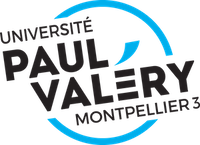Both J.R.R. Tolkien and George R.R. Martin have created fictional territories and invented fictional languages. Both have a global, trans-national army of fans, who congregate within an international community acting according to a strictly shared code, which implies the detailed understanding of the geography and chronology of the two fictional universes and the knowledge of the invented languages spoken within them. Fantasy speaking is the new Esperanto of our times, and a new collective, very selective identity label. There might be nevertheless, I feel, a certain generational difference concerning the cultural approach of fantasy. While for the older readers the worlds created by J.R.R. Tolkien and George R.R. Martin do not exceed the peculiar limitations which characterize the constructions of the imaginary, for the younger fans both universes enjoy an ontological credit expressed by the representations of space and by the words uttered by their protagonists.
A great linguist living and teaching in Oxford, J.R.R. Tolkien was an outstanding scholar of early Mediaeval texts, interested in a vast array of precious and selective linguistic performances, but he also invented languages long before starting to write The Lord of the Rings. The trilogy was actually preceded by the invented linguistic cartography of the domain, because – as the author has said – “the invention of the languages is the foundation. The «stories» were made rather to provide a world for the languages than the reverse.” Also important for the writer was the linkage existing between language and mythology: “To give your language an individual flavor it must have woven into it the threads of an individual mythology. The converse is indeed true: your language construction will breed a mythology.”
The best community one can find in order to deepen into the hidden layers of the Tolkien linguistic mythology is The Elvish Linguistic Fellowship, “devoted – according to its site - to the scholarly study of the invented languages of Tolkien”. My paper intends to have a three-layered structure. In its first part I want to analyze several aspects of the invented “language mythology” imagined by Tolkien and his followers, especially by George R.R. Martin, while in the remaining two sections I intend to focus on the scholarly and, respectively, spontaneous language culture and community generated by Tolkien's and George R.R. Martin's universes. Both have a specific systemic strictness, but the cultural realm in which they function is different.
Further attention will be given to the mythological analogies which contextualize the topic, especially to the Arthurian legend and to its cultural reenactment in the Victorian and Edwardian periods.

 PDF version
PDF version
